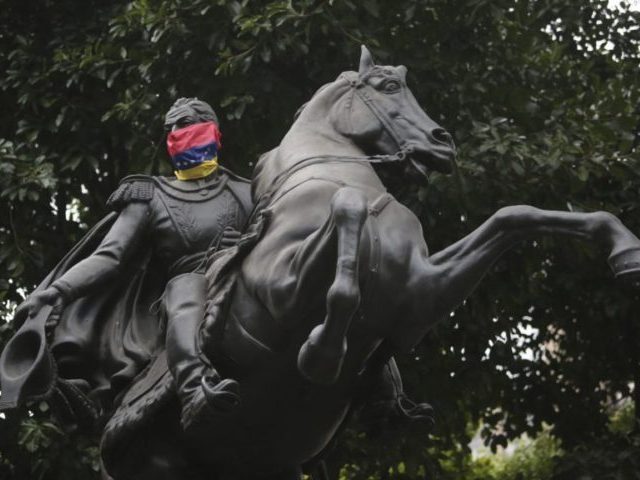Bonds from Venezuela and its state oil company sank Wednesday after the Wall Street Journal reported that the U.S. may ban regulated financial institutions from trading the debt.
The U.S. has been leveling sanctions aimed at punishing dictator Nicolás Maduro for human rights violations and undermining the country’s democracy for months but, so far, most of those sanctions have been aimed at individuals, including at Maduro himself.
According to the Wall Street Journal, the U.S. is now considering banning banks and other regulated financial institutions from buying and sell dollar-denominated bonds issued by the Republic of Venezuela and its state oil company Petróleos de Venezuela SA (PDVSA).
President Donald Trump reportedly has not made a final decision on whether to go ahead with the ban.
Maduro regime critics have branded Venezuela’s debt instruments “hunger bonds” – a reference to the decision by Maduro to continue paying interest on the country’s debt even as Venezuela’s food and medicine shortages have created a severe health crisis. Critics have condemned Goldman Sachs for buying billions of dollars of bonds issued by the state oil company at a steep discount. Credit Suisse, the Swiss bank, has told its traders to avoid dealing in certain Venezuelan bonds.
Trump has promised “swift economic action” against Maduro for creating a faux-parliament stacked with supporters, the “national constituents assembly” (ANC), and granting it all the powers of the legitimate, democratically-elected National Assembly. Among the members of the ANC are Maduro’s wife, “first combatant” Cilia Flores, and son Nicolás Maduro Guerra.
“The ban is designed to damage Mr. Maduro’s support among military officers and government contractors who hold Venezuelan bonds, without immediately hurting the wider population,” the Wall Street Journal reported, citing one person “familiar with the matter.”
The Venezuelan government has about $65 billion of outstanding debt that trades at steep discounts due to the risk of default. They have become popular with hedge funds and other investors willing to tolerate the risk in exchange for higher yields. These investors either believe that Maduro can remain in power and continue to make payments on the debt or that a future government will be forced to honor the obligations created by Maduro’s regime.

COMMENTS
Please let us know if you're having issues with commenting.